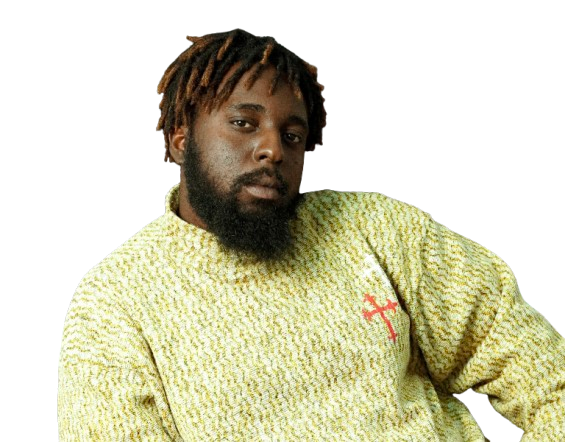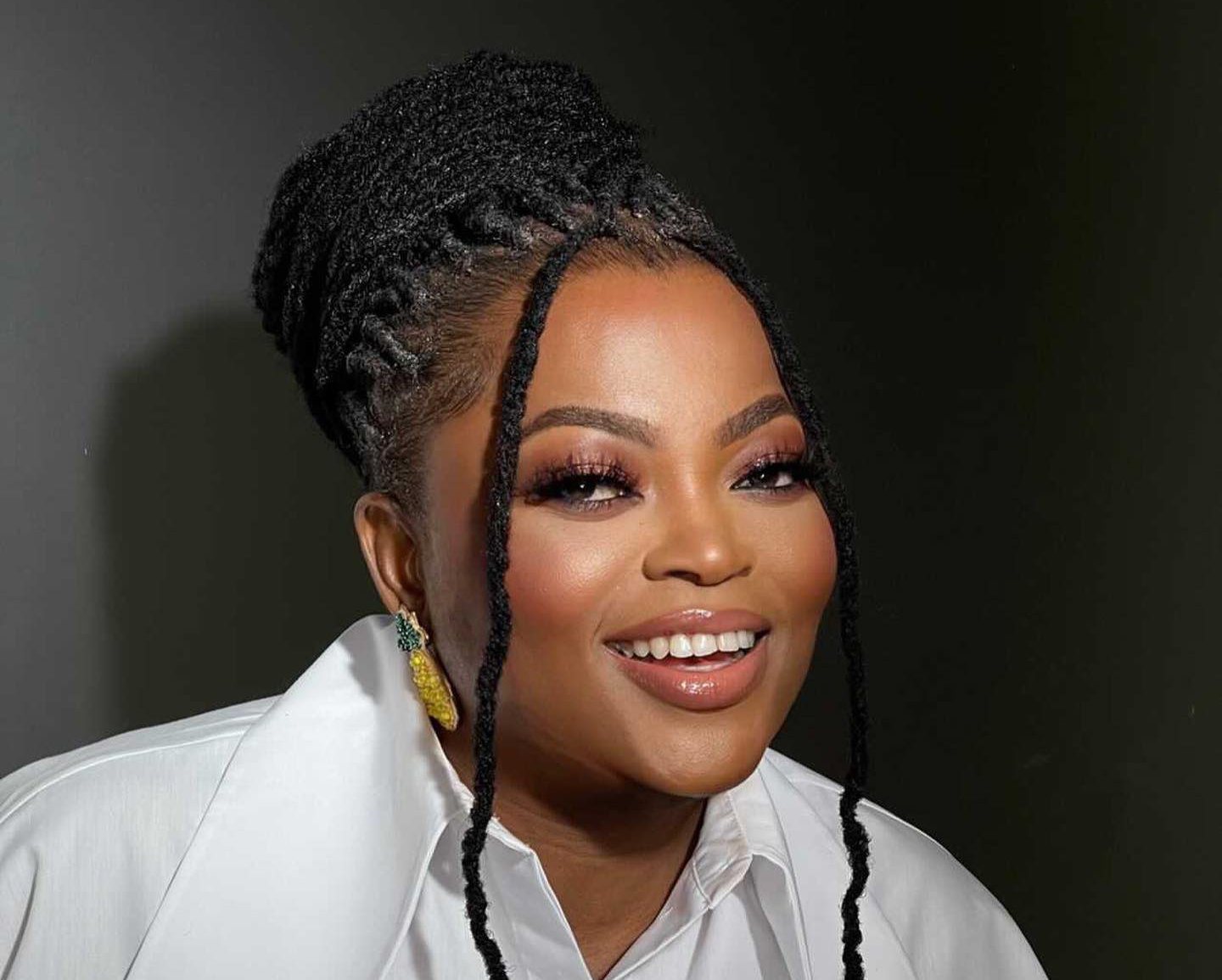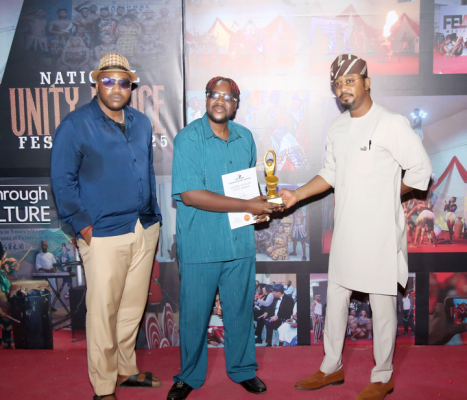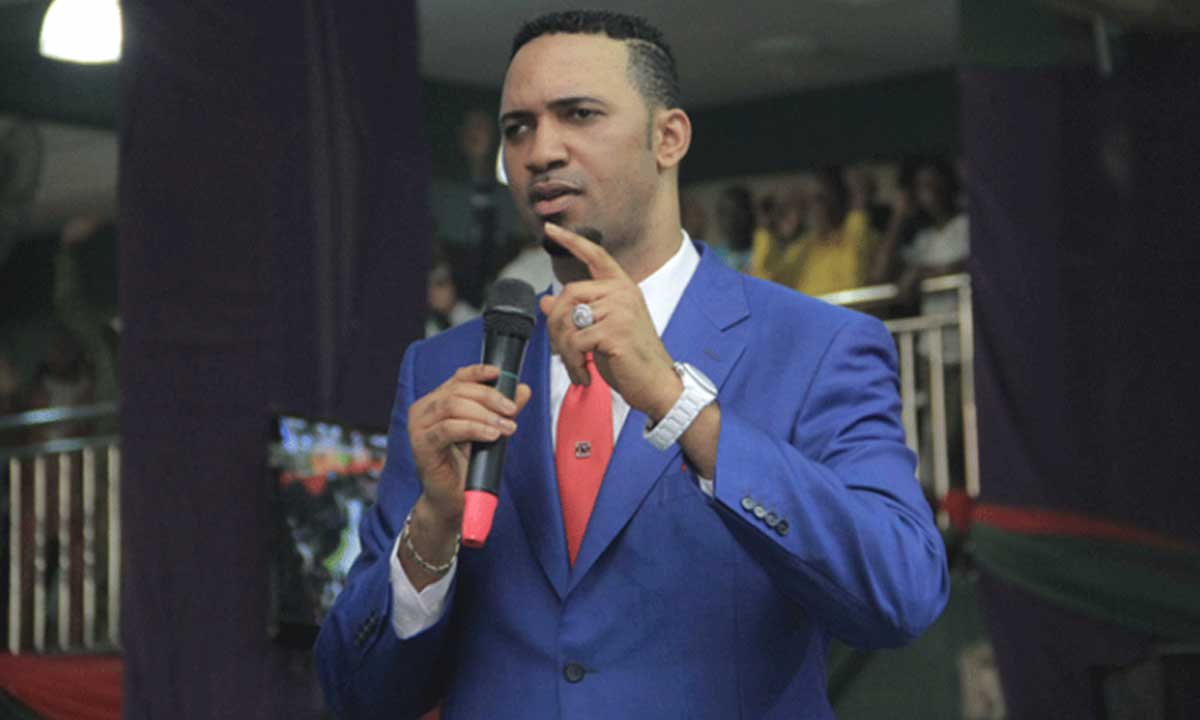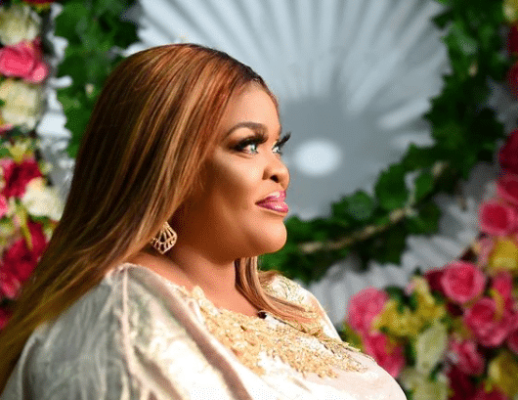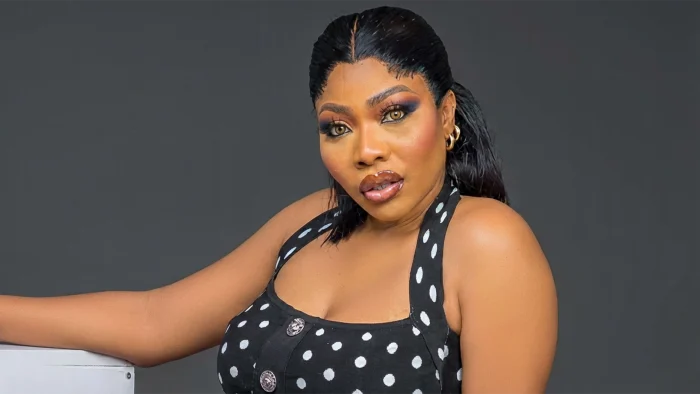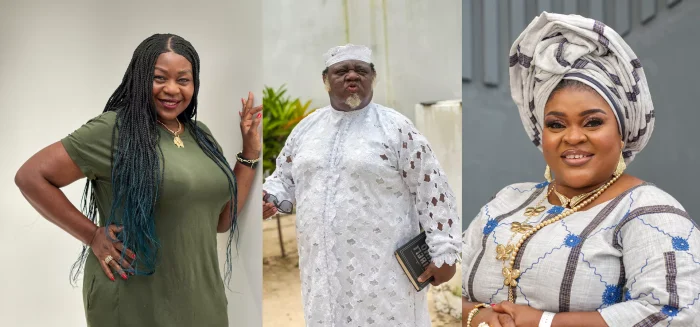After striking gold with Ogechi, Brown Joel steps out on his own with High Spirit, a 10-track debut mixtape that captures his buoyant mix of gratitude, faith, and youthful wonder. The Ajegunle-born singer revisits his roots, his trio’s rise to fame, and the lessons that shaped his leap into the spotlight.
Before Brown Joel tore through Afrobeats’ fame corridors last year with the breakout song, Ogechi (with BoyPee and Hyce), the singer had already clinched underground success as an emerging artist.
In 2022, the troubadour, born Favour Agubosim, stepped out with his debut solo song, Peace, which cemented his status as one to watch. Prior to his trio’s breakout moment, Joel had built a stealthy momentum with songs like Ecstasy (with Mayorkun), Casino, and Omo Ologo. He had also featured on key releases since 2020, including DJ Consequence’s Enter, Dr Caise x DJ Lambo’s Alioth (with Ice Prince), and Ejoya Class of `23’s Canabi (with Tariq, Ema Onigah and BMH).
Now, after the widespread success from the trio’s releases between last year till date, including their joint EP, Synergy, the 22-year-old singer has resumed his solo ascent, with a 10-tracker debut mixtape titled High Spirit.
In High Spirit, Joel spins a giddy and introspective soundtrack that reflects the perspectives gleaned from his sprint to stardom. With his signature fusions, he immerses the album with the same airy groove that has coloured his melodies since the beginning.
In this week’s Guardian Music, we sit down with the music star as he peels back layers on his come-up journey, the genesis of his trio with BoyPee and Hyce, the muse behind High Spirit, working with Davido on the Ogechi remix, and his mission to consistently churn out evergreen songs.
What’s High Spirit all about?
High Spirit is an embodiment, a portal to a spiritual feeling and a feeling of levitation whenever you listen to my music. It’s more like a state of mind.
When did you start recording this mixtape?
I have been making High Spirit since 2020.
What paused its release?
The timing had to be divine. I am glad that we’re here now, though.
How did you begin your journey in music?
It started from an early age, living with a family where music was subconsciously everything. My mom was in the choir. My elder brothers were suckers for good music. They listened to the likes of Westlife, P-Square, Flavour, and so on.
Where did all this happen?
I was born and brought up in Ajegunle, Lagos. It’s a place that revolves around art and music. I started out dancing, but music came in alongside. I was in Senior Secondary One when I started taking music very seriously.
What was your music about then?
You know how there is that one child in the compound or in the area that always has headphones on, whether doing any chores or anything, their ears are always blocked with headphones — that was me. I sang people’s songs word for word as if I co-wrote them. So, one cool afternoon, I was home alone, and the thought just came to my head that I should try writing a song. So I wrote some lines, and it seemed, well.
So, when did you start recording music?
I started at age 14; I was still in high school. My first studio session cost 5,000 naira. My friend co-funded it. We were singing together. His name is Kazi, and I’ve never mentioned this anywhere before, though. So, we were like a duo, and also close friends in high school. We performed it at the local clubs in our area, where people gathered to drink palm wine and beer. We had to beg the MC or the DJs to let us perform. And sometimes we even had to pay them to let us perform, say 1,000 naira. After we were done performing, we used to go around the tables with our snapback hats, and people would donate some change to us. We were not able to release the music professionally, but we did put it out on some free websites.
What was the journey like in university?
It wasn’t easy, juggling both university and musi/c. I had to drop school for music. I was studying French at the University of Lagos.
What was the defining moment for you to ditch school for music?
To be honest, the motivation for me was pain, because I couldn’t afford to juggle the lifestyle and responsibility back home. I still remain the breadwinner of my family. And, at that point, my mom was very ill. I had already gotten a little exposure with my song, Peace, so I didn’t want to stay anywhere around school because of what we were doing with the music. I needed to be on the Island for studio sessions and on the go, in case I got called for an impromptu session. So that experience prompted me to think about everything, and I knew that one had to go. Music has always been my first choice in life. I think music has taught me everything that I need to know in life. Music is the education that I think I need, especially in the system that we have in Nigeria.
How did you get discovered by your record label?
I got signed in 2022. They scouted me through a friend, Dafe. They reached out to Dafe, looking for talent. He sent them a couple of underground artists, and my handle was amongst them. They reached out to me, and we connected easily.
What’s the lore behind your name, Brown Joel?
I came up with the name Brown Joel because Brown is my middle name. And, growing up, my mom always used to watch this soap opera in which there was a character whose name was Joel that we liked. Randomly, I just asked my mom, ‘Why didn’t you give me the name Joel?’ And then she said I can bear the name, and that it is a nice name. From there, I picked it up.
Tell us about the musicians you grew up listening to.
Tuface, Duncan Mighty, Engineer Bruno — the guy who sang Arabanko. I listened to a lot of Bongo music as well. There was Oliver de Coque, African China, Original Stereoman, Westlife, Backstreet Boys, Celine Dion, and a lot of others.
Back to your music, what is the core message in High Spirit?
Love. Love and the power that we have as humans over our life. In the song, Higher Power, I tried to educate people about the power of manifestations and believing that there’s a higher power that exists on earth and makes things work; you can actually call upon the power, and He answers you.
Take us through your creative process.
Naturally, the talent is there. I could close my eyes and do whatever I want, but I enjoy stimulating myself up before diving into the music. I shut out all the doors around me, and I tap into my inner source. I start with melodies first, and then the words come after. Sometimes the words actually come instantly, but otherwise I like to get my melodies down first.
What was your most memorable recording session on the album?
They were all memorable to me. I can remember the session for Hide N Seek. I was on FaceTime with my friend, SK, who lives in the UK. I came up with the song idea, and we made that song over FaceTime. There’s another song, Omo Temi, that had an unusual muse. I had stumbled on a video on Instagram, where Ice Prince was visiting his town, and they were welcoming him with drums and singing. The sounds caught my attention, and I just saved the video. I sent it to my producer and asked him to build on it. So if you listen to Omo Temi, there’s an intro that sounds like people are chanting something. I always love contributing to a song’s production as well.
Okay. Are you still making music with your trio?
Yes, we are.
How did you all connect?
It’s just destiny. We are not the first trio to collaborate, but we got this much reception before even putting out a joint project. We are not even a group; we just came together to create music. We all met after we returned from Enugu, where we went for a friend’s campus tour. It was on that tour that we met ourselves properly. We liked our sound, and we realised that we all live in the same area. And then we decided to create when we got back to our base. And the very first session we had was when we made Ogechi. Everything was smooth.
How did you guys bag the Davido feature on its remix?
God bless Cubana Chief Priest for making it happen. When the song picked up, Chief Priest showed us love and took the song to another level. Through Chief Priest, Davido just called us one random evening and asked us to link up. I didn’t even take a shower, I just took a bike to the bus stop quickly and linked BoyPee halfway. We all arrived there, and it was his Bachelor’s night. He just asked one of his guys to take us to the studio to go and do the remix. There was no asking whether we wanted it or not. After we recorded, he gave us his phone to follow ourselves on Instagram. Then he posted snippets online, and it all felt like a dream.
You’re also a professional songwriter. Tell us about the journey so far.
In my songwriting career, I would say I got inspired to be a good songwriter from listening to J Cole and Kendrick Lamar. I have written for quite some artists, so far, including Mayorkun’s For You, Mr Eazi’s Zuzulakate, and Panadol off his album, The Evil Genius. I’ve been writing songs since 2020.
When you’re not making music, what are you likely doing?
I’m likely just in my head most times. I like to play Snooker. I listen to music a lot and stay indoors.
What is your favourite music app?
Spotify, okay.
What’s one song that you wish you wrote?
J Cole’s Love Yourz
Finally, what’s the vision for Brown Joel?
My vision is to keep moving forward, being clearly accepted, and being seen as someone special. And to keep on putting out evergreen music. I think the world is getting to realise that as the days go by. I’m grateful for such moments, because the dream keeps getting clearer.

